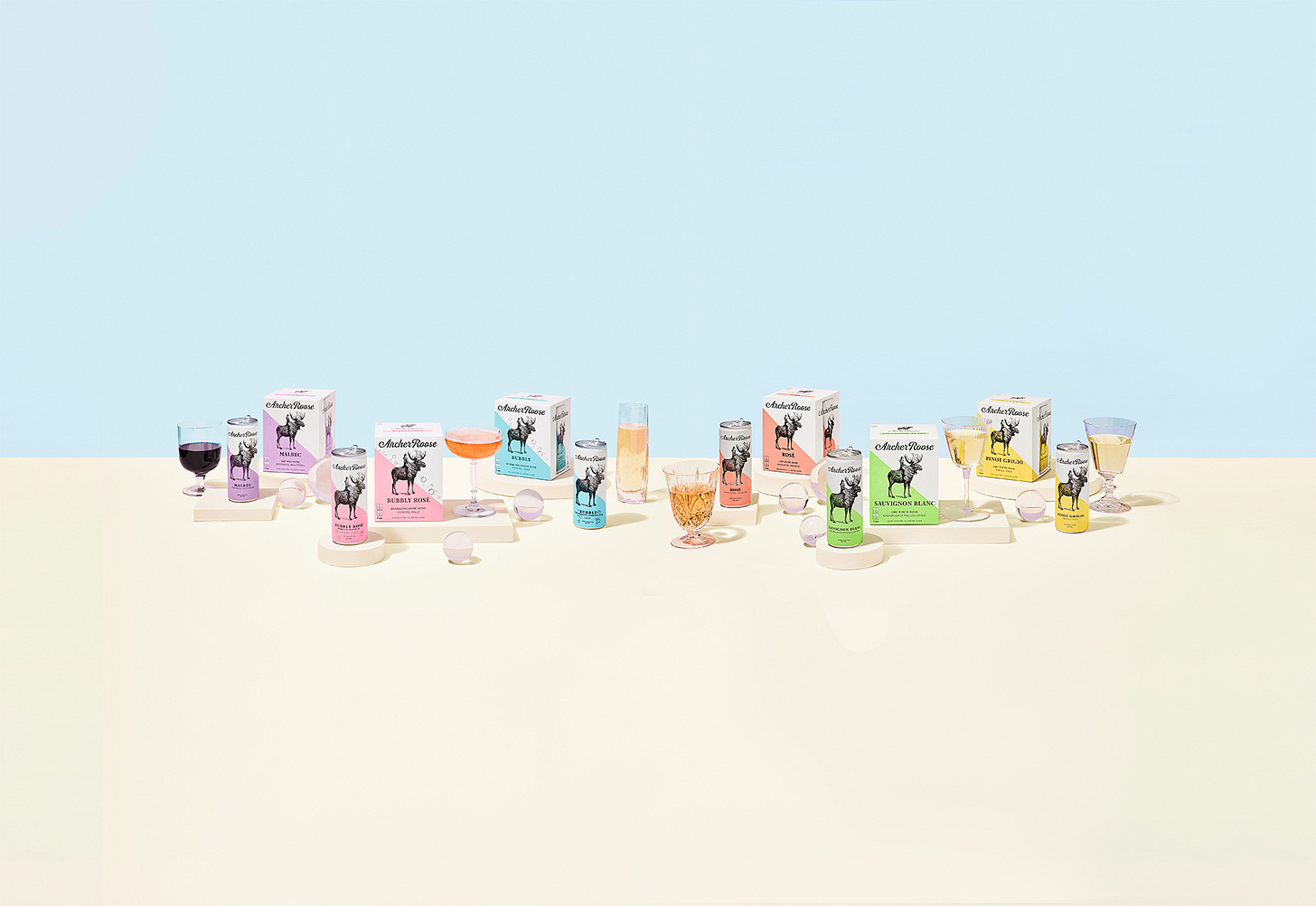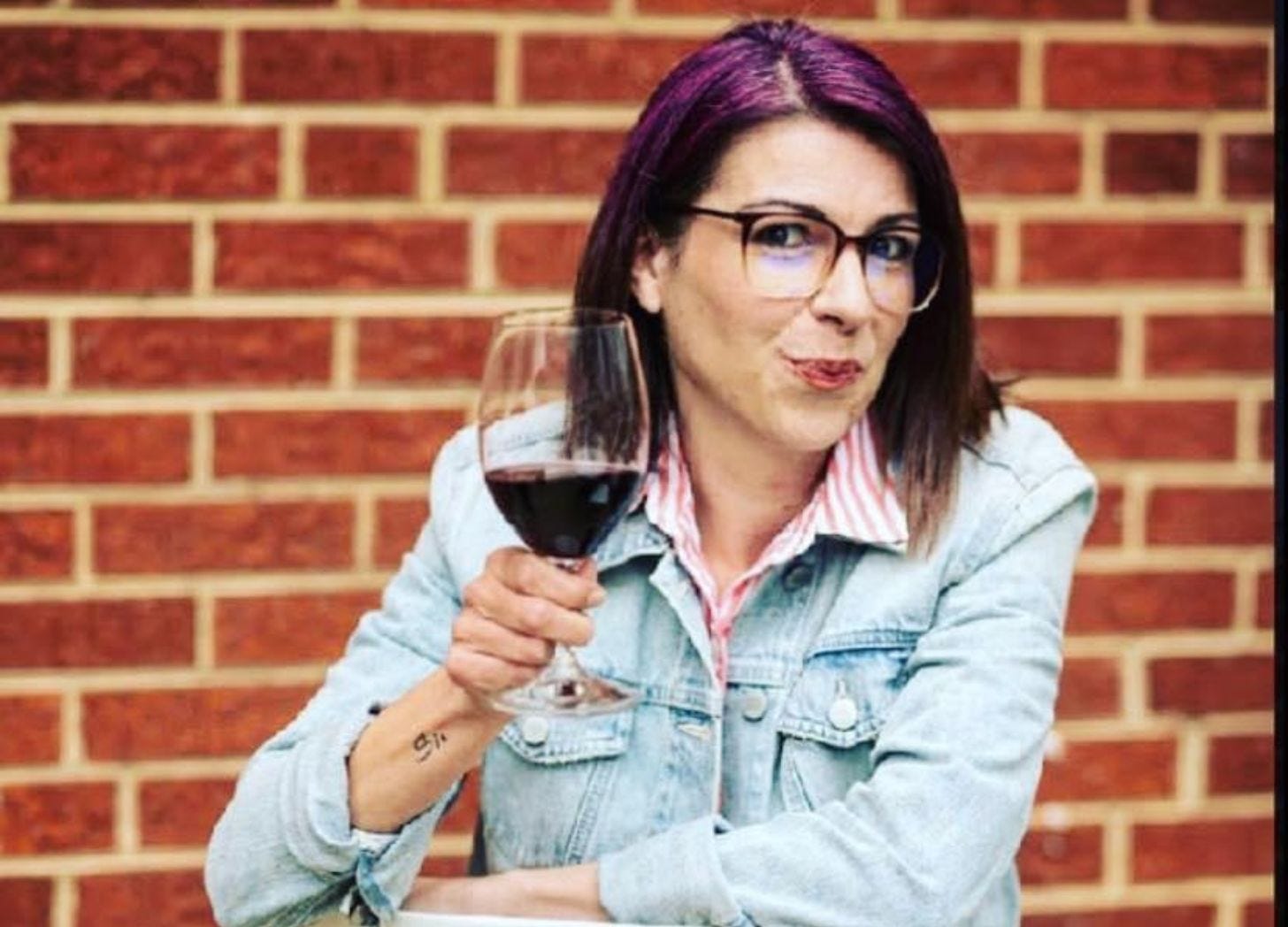From Cinemas to Concerts: How Archer Roose is Winning Over New Wine Drinkers
An interview with the very inspiring Marian Leitner-Waldman
One fun thing about Drinks Insider is that it connects me with interesting, positive people. I’ve enjoyed all the interviews I’ve done, but some are special — like the discussion with Marian Leitner-Waldman.
Marian, the founder of Archer Roose, recognised that a new generation is looking for high-quality, transparently-labelled wine in convenient formats.
The results speak for themselves: by August this year, sales were up 20% to 110,000 9L cases, with distribution in 6,000 outlets.
You’ll find the interview here.
Marian Leitner-Waldman, Archer Roose
7 key insights:
1. Cans fly off the shelf
Cans are ideal for contemporary consumers, for whom moderation is increasingly important, because they’re single serve, and they keep the wine fresh.
“The third piece is that aluminium is recyclable everywhere in the United States thanks to Coke and Pepsi,” says Marian. “So you don’t have the problems that you face in glass or even some tetra paks, where it’s not recyclable everywhere. It truly is a more sustainable solution.”
Archer Roose worked with the University of Cornell to improve the quality of the canning — and has made the research available to the entire industry.
2. Beer distributors know how to sell cans
Marian noticed that “consumers were spending a ton of time in more traditional beer accounts. Think about places like taco joints, pizzerias and bowling arcades. There were no wine options there, but there was beer.”
She decided to find a beer distributor.
“Wine distributors really struggled with the concept, but beer distributors got it from the outset. They understood from the get-go that it was a great on-premise opportunity.”
But, says Marian, she had to teach the beer people to be comfortable speaking about wine. She tells them, “you don’t have to be a sommelier”. Instead, she gets them to encourage their customers to taste test her wines against the competition.
3. Look at where consumers are congregating
When Marian went to a Taylor Swift concert, she noticed that “there was one outlet in the entire stadium that sold wine and that outlet literally had a line wrapped around the entire stadium — and the wine wasn’t even that good.”
She hypothesised that there were a lot of wine drinkers going to concerts who weren’t being served, and negotiated with the concessionaire to test wine at three concerts.
“I saw a 15% increase in their bottom line. Now, we’re outselling our competitors by five times in a stadium.”
4. Wine and cinemas are the perfect match
Regal Cinemas approached Archer Roose after discovering that people weren’t returning to cinemas because the drinks offerings weren’t as good as they got at home.
“We are seeing double digit velocity on a monthly basis per cinema,” says Marian. “I think it really speaks to the fact that we all learned to drink wine while watching movies while we were at home during the pandemic, and we’re taking that behaviour into these movie theatres. But what’s more, we’re all looking for that communal experience.”
5. Give consumers what they want
As Katerina Axelsson of Tastry told Drinks Insider, the use of benchmarking and competitor analysis has made the big brands more homogenous, meaning American consumers are being offered more of the same, at every turn. Marian agrees.
“Frankly, shopping in the wine aisle, even for somebody who’s pretty knowledgeable about wine, is still pretty frustrating,” she says.
Marian says people have changed, and just as they care more about the quality of food, so they do about wine.
“They want transparency, they want high quality, they want premium products that tell a story — and they want it in a format that makes sense for them.”
As she says, 750ml bottles no longer make sense for “97% of the occasions out there today”, which is why Archer Roose concentrates on bag-in-box, cans and bagnums.
6. Ingredient labelling is important
People want to know what’s in their wine, partly because people have become more ingredient conscious, and partly because “this is a pretty big investment compared to other alcohol. And they want to know that they’re going to like what they’re going to get.”
7. Breaking through investors’ preconceptions was hard
When Marian approached investors, she was up against people who drink fine wines, who couldn’t imagine drinking wine from a can.
“There were a few people that really believed in me early on, enough to keep us going. Then JetBlue came on board — and that was a game changer for our company.”
Since then, Constellation has acquired a minority stake, through their Focus on Female Founders initiative.
This is only a fraction of what we covered in our discussion, including a chat about the right and wrong way to get a celebrity involved. Give it a listen!
Another Wine Brand Busting Through
When you’ve finished listening to that one, make sure you listen to Amy Troutmiller’s interview, which I will write up in a future newsletter. Amy is another firecracker entrepreneur, whose brand Really Good Boxed Wine is flying off the shelves.
Like Marian, she’s discovered that what consumers really, really want is high-quality wine in flexible formats. It’s another very positive interview, that should make everybody in wine feel optimistic about the possibilities out there.
Amy Troutmiller, Really Good Boxed Wine
Shameless Self Promotion
Last week I was in Virginia, enjoying the spectacular autumn colours, along with the wine and spirits culture. Around 10 am on Tuesday, my WhatsApp started to light up with congratulations, though I had no idea why.
It turned out that WineBusiness Monthly had named me one of their leaders of 2024. I still can’t believe it, especially as it’s an American list full of heavyweights, and I’m not even American. It’s a long way from my days of skulking around wine tastings in Sydney, scared of being asked questions in case anyone found out how ignorant I was.
Nobody achieves anything on their own, and the only reason that I can still write about wine is because I’ve been helped over many years by so many people. This is really the most generous and wonderful sector to be reporting on. More than that, I truly believe its very existence is a riposte to the soul-sucking exploitation and hustle that characterises modern life. It’s a bunch of people who insist on sitting down at the table and taking the time to enjoy each other’s company. That’s very precious — and worth defending.
I can’t possibly thank everybody who’s given me a hand (I would crash the Substack server) but I can at least say a big thank you to Erin Kirschenmann and Cyril Penn at WineBusiness Monthly, who have been prepared to take a risk on my work. If you value good reporting, please go and subscribe.
And just to round out the week, I was mentioned in Jancis Robinson’s terrific article on wine and health.





